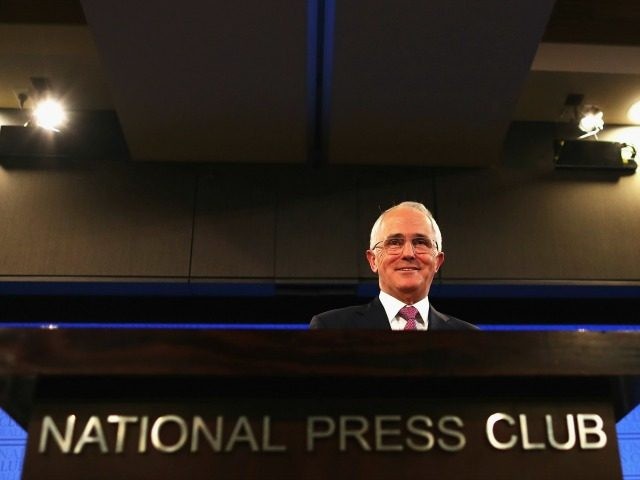Australian Prime Minister Malcolm Turnbull looked almost certain to retain power after a bruising national election as key independent lawmakers pledged support and marathon vote counting in close-run electorates leaned in his favor on Friday.
Pollsters said a long-delayed victory, albeit a very tight one, was virtually in the bag but the man himself was more circumspect, declining to declare the win until final seats were counted.
Turnbull’s gamble in calling an election, ostensibly to clear the Senate of what he saw as obstructive minor parties, backfired badly with a swing to the center-left Labor opposition and a rise in the popularity of minor parties and independents.
“Australians have voted, we respect their decision, there are many lessons in that election for all of us,” Turnbull told reporters in Melbourne, reprimanding his industry minister, Christopher Pyne, who appeared to celebrate prematurely when he described the coalition as an “election-winning machine”.
“We’re taking those lessons to heart very seriously and we respect the votes that have been cast, and one way we show that respect is by waiting for the counting to be completed, or completed to the point where the decision is claimed,” Turnbull said.
Counting of votes from Saturday’s election dragged on into a sixth day, with a rubber stamping of Turnbull’s government expected to be still a few days away, but the likelihood of a minority government and an obstructive Senate has already set off alarm bells.
Standard and Poor’s cut Australia’s credit rating outlook to negative from stable on Thursday, threatening a downgrade of its coveted triple A status, over fears.
“We really want to see them start achieving some of their forecasts,” S&P associate director of sovereign and international public finance Anthony Walker told a briefing, noting that the cost of refinancing Australia’s debt is up to three times more than it earns in foreign currency.
‘FISCAL SLIPPAGE’
Treasurer Scott Morrison’s latest forecast was for net debt to peak at 19.2 percent of gross domestic product (GDP) by mid-2018. Yet as recently as the 2012/13 budget the peak had been projected to be less than 10 percent.
“There’s been a number of years of fiscal slippage and its really time for the government to really step up and deliver on what it’s telling us,” Walker said.
There was some potential reassurance on that front as a third independent begrudgingly lined up behind the coalition after a personal plea from Turnbull who flew around the country in recent days to garner support.
“My focus now turns to doing what I can to help settle the situation down and foster stable government,” Andrew Wilkie, one of the independents said, while stressing he would retain his right to vote independently in parliament.
Turnbull’s coalition is projected to hold 73 seats in the lower house, three short of the 76 it needs to form a government on its own. But it now has the backing of three of the four independents who won seats and looks likely to snatch at least half of the six seats that are still undecided.
On a projected 66 seats and without support from any of the four independents, Labor is out of the race to form a government but it believes Turnbull could be forced to call another election in a bid to clear the impasse.
“It’s likely in coming days that the Liberals will scrape over the line but the combination of a PM with no authority, a government with no direction and a Liberal Party at war with itself, will see Australians back at the polls within the year,” Labor Party leader Bill Shorten told a party gathering in Canberra.
“We will be campaign-ready from this day onwards.”

COMMENTS
Please let us know if you're having issues with commenting.